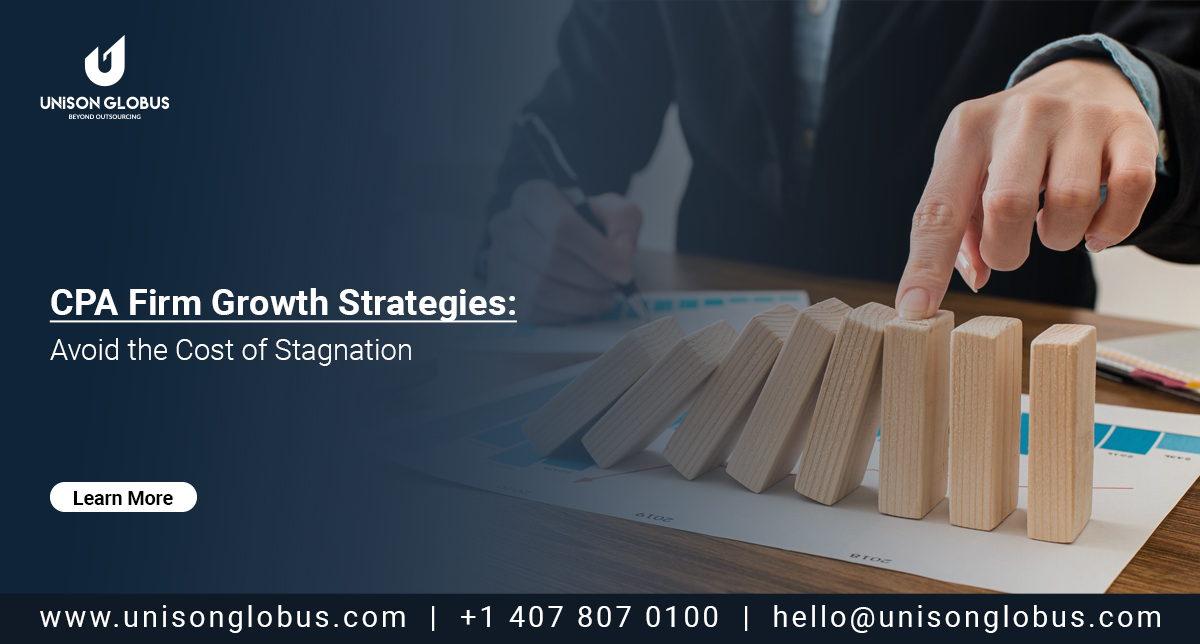01. Lost Revenue and Missed Opportunities
Outsourcing is not about reducing cost. It is about unlocking time, talent, and opportunity that already exist within your firm.
02. Burnout and Attrition: The Human Cost of Stagnation
A firm that fails to scale ends up exhausting its people faster than it grows its profits.
Scale Without the Strain
At Unison Globus, Offshore Staffing 2.0 helps CPA firms expand their capacity with expert support teams that integrate seamlessly with your existing systems. Stay focused on advisory. Let us handle the workload. Explore Offshore Staffing 2.0
03. Lower Firm Valuation and a Weaker Exit Strategy
In contrast, firms that depend on overworked partners or seasonal hires may appear profitable in the short term but lose momentum and valuation over time.
The Strategic Domino Effect
By aligning your processes with reliable outsourcing and automation, your firm becomes more agile, resilient, and attractive for future growth.
Conclusion 
Build Capacity. Build Value. Build Forward
Unison Globus empowers CPA firms to grow through Offshore Staffing 2.0: a model built for smarter, scalable, and sustainable accounting operations. Your next phase of growth starts with the right capacity. Talk to Our Team

 [gtranslate]
[gtranslate] 


